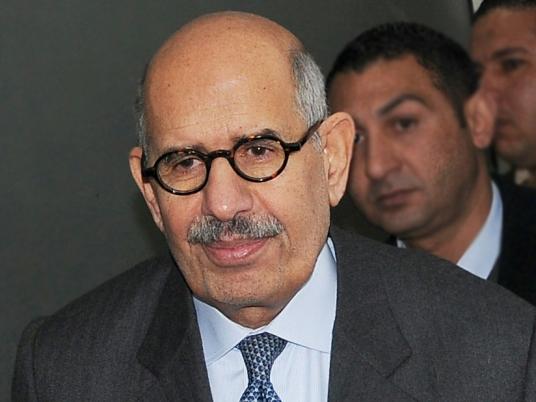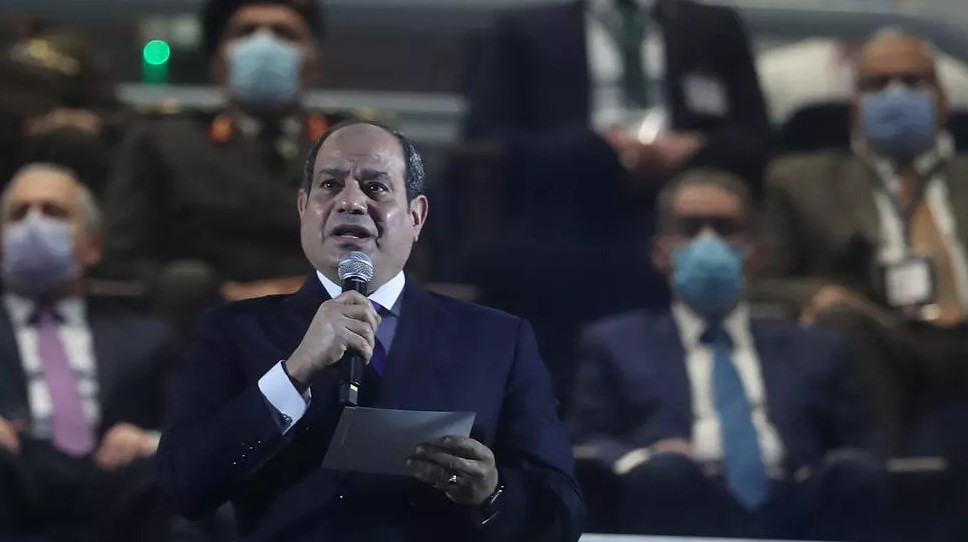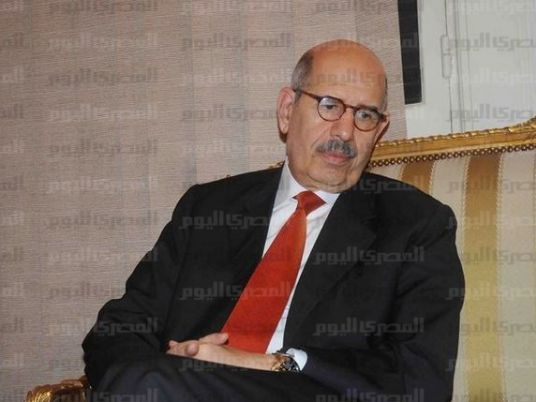Thousands of young volunteers have launched the first phase of Mohamed ElBaradei’s presidential campaign. The campaigners are currently working in 22 governorates, passing out fliers, meeting with potential voters, and working to develop a comprehensive campaign strategy.
They are working particularly hard on improving the image of a man who has spent much of his adult life outside of Egypt. “For a year and a half, the regime has systematically worked on distorting ElBaradei’s image, that’s why it is important to restore it before presenting him to the public,” says Mohamed Hetta, member in the campaign’s high board.
Rumors have circulated that ElBaradei supported the 2003 invasion of Iraq when he was director general of the International Atomic Energy Agency (IAEA). The career diplomat has vehemently denied the rumours, however, and records show that after leading inspections in Iraq, ElBaradei announced that there was no evidence of a nuclear program there, a blow to the US case for the war.
Another rumor that has threatened ElBaradei’s prospects with Egypt’s conservative majority revolved around his daughter, Leila, who was rumored to have a non-Muslim husband and whose pictures in a bathing suit were spread on social media.
In a recent TV interview, ElBaradei said that his son-in-law is a Muslim and that the pictures of Leila were taken at the family’s private pool. He added that he is proud of his daughter’s principles, which are not to be judged by appearance.
ElBaradei, who has a house in Austria, where the IAEA is based, has also been combating rumors that he holds dual nationality and is married to a non-Egyptian.
Hetta says that the current phase of the campaign aims at correcting misconceptions about ElBaradei, in order to pave the way for him to go into the streets and address people directly. ElBaradei's supporters have also launched an online facility called "Supporting ElBaradei for Egypt's Presidency" to re-run television interviews as part of their effort to educate the public about him.
ElBaradei hasn’t announced an electoral strategy yet, but his campaigners aim at introducing his broad vision to the people. ElBaradei announced his intention to nominate himself for president in a March 9 interview with ONTV, in which he described himself as a social democrat.
He said during the interview that he “will be honored to serve the Egyptian people and to help repair the state’s administrative structure and build a real political system.”
His vision for the next phase is to draft a new constitution then to have presidential elections followed by parliamentary elections.
He took part in a campaign rejecting the constitutional amendments that were passed in a referendum last month. He calls for a new constitution, saying that the current Constitutional Declaration, which gives absolute powers to the president, will create a new dictator.
ElBaradei’s campaign also aims at increasing overall political awareness, his supporters said. Campaigners train one individual in every governorate, who then trains others in order to start a chain of political awareness speakers.
ElBaradei’s name was first suggested for president in 2009 by a group of young Egyptians.
After heading the IAEA for 12 years, ElBaradei returned to Egypt in 2009 and founded the National Agency for Change (NAC), which gathered over a million signatures supporting his seven demands, including calls for civil and judiciary supervision on elections, the suspension of the Emergency Law, and relaxing the strict conditions on presidential candidacy.
“When ElBaradei returned, the campaign shifted its focus towards change, but now that change has happened, we went back to promoting ElBaradei’s presidency,” says Hetta.
Many youth and opposition groups have called on ElBaradei to run for president over the past two years, but he maintained that he would not run until the demands that guarantee free and fair elections were realized.
After the eruption of the revolution, ElBaradei returned to Egypt from Austria on 27 January and took part in the Day of Anger protest and in following protests in Tahrir Square.



